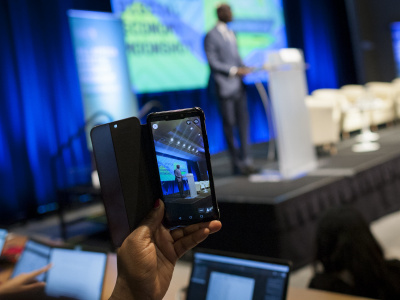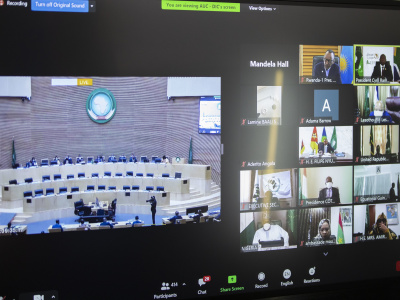
Financing the African Union – on mindsets and money
With 55 member countries, an elaborate institutional architecture, a broad policy agenda, and a high dependency rate on its former colonisers and main donors, the African Union (AU) is probably the world’s largest and most complex regional partnership configuration.
Summary
Until 2017, repeated efforts at reducing dependency on foreign funding and increasing the yearly contributions from the member states of the AU had largely failed. Unpredictability and unreliability of funding by both African member states and by external funders led to wider management and staffing challenges. Due to a financial crisis of the AU around 2016, a renewed and joint push at different levels of the AU resulted in hands-on institutional reforms, piloted by Rwanda’s charismatic President Paul Kagame.
This paper analyses the margins of manoeuvre for reformers and their external supporters to resolve money and governance matters within the wider context of institutional reforms of the AU. It has introduced a levy on eligible imported goods into the continent and has established systems to instill more discipline in planning, monitoring and implementing of budgets. A handful of donors are doing some soul searching as past promises to harmonise aid and align it with priorities and management systems of the AU have not effectively reduced the unintended burden of their fragmented, earmarked and overly ambitious support.
Clearly, this paper is about money, and about the difficulties of financing the African Union. But as Paul Kagame, the Rwandan President and former Chairperson of the African Union argued, more than about money, these challenges are about “the right mindsets”. The attempts to improve the quality of the partnership in support of AU institutional reforms illustrate his point.
The paper draws on the findings on reform efforts of the African Union and partnership experiences as part of a larger study on the Political Economy Dynamics of Regional Organisations.




